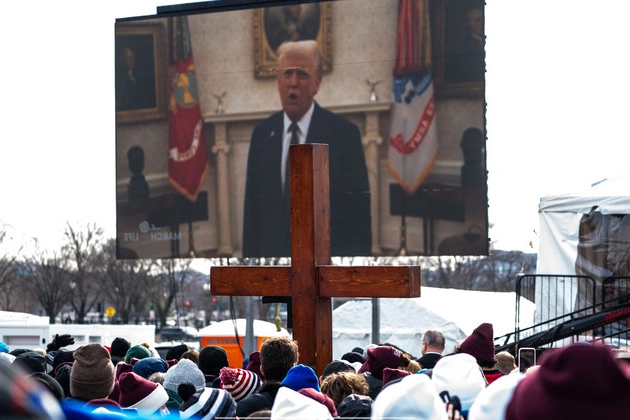
The Trump administration has assigned two top political appointees, Kim Brandt and John Brooks, to monitor the Department of Government Efficiency’s access to vital systems within the health agency responsible for overseeing Medicare and Medicaid, as revealed in internal emails obtained by POLITICO.
Collaborative Efforts with DOGE
Brandt and Brooks are spearheading the Centers for Medicare and Medicaid Services’ collaboration with an unofficial cost-cutting group led by Elon Musk. Their primary focus includes ensuring appropriate access to CMS systems and technology, aligning resource utilization with President Trump’s objectives.
Brandt, a former health care lobbyist, now serves as the agency’s deputy administrator and chief operating officer. On the other hand, Brooks, previously involved in health consulting and research, holds the position of deputy administrator and chief policy and regulatory officer. Both individuals previously worked at CMS during the initial Trump administration and recently resumed senior roles within the agency.
Transparency and Scrutiny
CMS acknowledged the involvement of ‘two senior agency veterans’ in collaboration with DOGE but did not explicitly name Brooks and Brandt as Trump political appointees. The DOGE representatives are primarily focusing on scrutinizing CMS systems technology and financial flows, with a particular emphasis on fraud and waste detection.
It’s essential to note that DOGE’s access is restricted to read-only, preventing them from making any alterations. Additionally, they do not have visibility into personal health information of Medicare or Medicaid beneficiaries.
Focus on Efficiency and Impact
The involvement of DOGE representatives has sparked concerns within the CMS regarding the extent of their access to critical payment and contracting systems. As CMS manages approximately $1.5 trillion in health spending across Medicare and Medicaid programs, the scrutiny for potential efficiency enhancements is crucial.
While efforts to identify and eliminate fraudulent practices in federal health spending have bipartisan support, the engagement of DOGE has raised apprehensions about the potential consequences, especially for Medicare and Medicaid beneficiaries.
Future Directions and Implications
The Trump administration’s commitment to reducing the federal bureaucracy, coupled with plans for significant savings from health programs like Medicaid and Obamacare, underscores the importance of effective oversight and resource allocation within CMS.
As discussions around potential cost-cutting measures intensify, the confirmation of Mehmet Oz as the CMS head is pending. In the interim, political leadership transitions within the agency indicate a shift towards aligning with the administration’s policy priorities.
It is imperative for CMS to maintain transparency and engage with stakeholders to ensure that any proposed changes align with the overarching goals of enhancing government efficiency while safeguarding essential health care services.
Stay tuned for updates on the evolving landscape of Medicare and Medicaid oversight and the implications of DOGE’s involvement in driving operational efficiencies within CMS.















